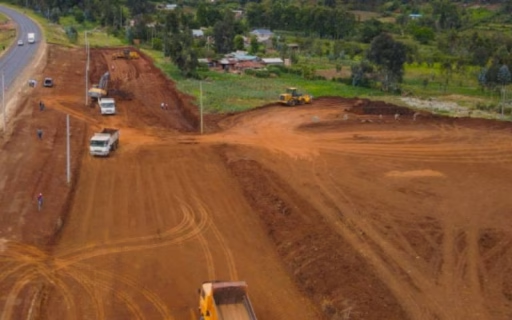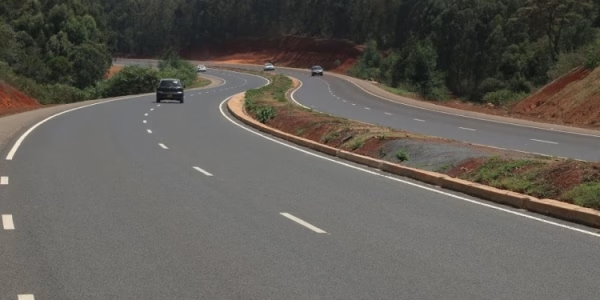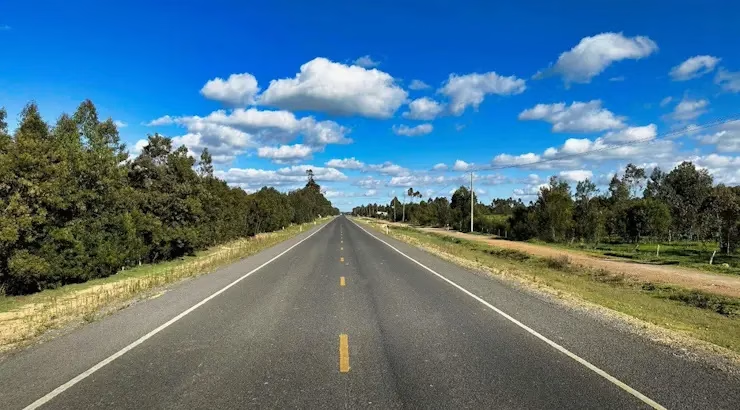Updated December 20, 2025:
After years of stalled plans and controversial switch in contractors, the Rironi-Mau summit road upgrade has commenced. Preparatory works has already commenced on the dualing of the crucial road project. Ruto earlier launched the project last month at Kamandura in Kiambu County. Furthermore, he promised it would ease congestion and boost regional trade. “This road is more than a highway. It is a gateway to prosperity, unity, and transformation,” said Ruto. He also noted that the government would complete the works by June 2027.
The project is estimated to cost approximately $1.5 billion and is being implemented through a public-private partnership (PPP). China Road and Bridge Corporation (CRBC) will construct the section from Rironi to Gilgil. On the other hand, Shandong Hi-Speed Road and Bridge International Engineering will complete the stretch from Gilgil to Mau Summit. Construction will proceed simultaneously as the government urges contractors to complete the project ahead of the Madaraka Day celebrations at Afraha Stadium in Nakuru in June 2027. Under the proposed 30-year concession, the Chinese firms will build, operate and maintain the highway, recovering their investment through toll collections. Other road upgrade projects the government has its eyes on is the Kiambu road dualing project, which is also taking shape.

September 21, 2025:
All indications suggest that Kenya’s government is inclined to surrendering the Rironi-Mau Summit road upgrade to China. The mover will further solidify China’s presence in the Northern Transport Corridor. The corridor is the key logistics transport hub that facilitates movement from Africa’s eastern seaboard through Kenya. From there, it links to numerous landlocked countries in the region. China’s presence in Kenya’s transport sector is already visible in the Standard Gauge Railway (SGR).
It is a project which the China Road and Bridge Corporation (CRBC) built and now operates through its subsidiary Africa Star Railway Operation Company. CRBC also constructed the Nairobi Expressway, the 27.5-kilometer tolled road that cuts through Nairobi. The monumental highway project is operated by CRBC’s affiliate, Moja Expressway. The expressway and the railway are key components of the Northern Transport Corridor, which also includes various major roads. These entail Mombasa Road, Uhuru Highway, Waiyaki Way and other recently built bypasses.
Project Factsheet
Significance:
- Enhances China’s position in Kenya’s Northern Transport Corridor, one of East Africa’s main logistics centers.
- Connects Kenya’s ports to landlocked countries in the region, promoting trade and regional integration.
- Expands on China’s established presence through major infrastructure such as the SGR and Nairobi Expressway
Infrastructure:
- Development of the Rironi–Mau Summit road segment, a critical part of Kenya’s transport road infrastructure.
- Originally conceived on a PPP basis with French firms to maintain and toll for 30 years.
- Cancellation of French contract for excessive and burdensome terms and toll rates shifted focus to Chinese bidders.
Developer:
- China Road and Bridge Corporation (CRBC) in partnership with the National Social Security Fund (NSSF) submitted one bid.
- The other bidders were Shandong Hi Speed Road & Bridge International Engineering Co. and Multiplex Partners (South Africa).
- Last-minute preference is with CRBC, already operating the Nairobi Expressway through Moja Expressway
Funding:
- Initially funded by a consortium of French firms through a PPP scheme, which was later cancelled.
- Chinese funding and management increasingly preferred, with toll revenues set aside for cost recovery.
- Professionals argue the government can utilize domestic resources for cheaper delivery.
Challenges:
- Opposition by the public to astronomical tolls and alleged Chinese-sponsored project disadvantages.
- Rejection of Everstrong’s Nairobi–Mombasa Expressway brings foreign-led concessions into question.
- Heightened controversy regarding whether Kenya should accept external bidders or finance roads internally.
The State of Affairs Regarding the Rironi-Mau Summit Road Upgrade
In its plans for the Rironi-Mau Summit road upgrade, KeNHA has received two privately initiated proposals. One is from a consortium of CRBC Kenya and the National Social Security Fund (NSSF). On the other hand, Shangdong Hi Speed Road and Bridge International Engineering Co is also bidding to construct the project. This two were already under evaluation when KeNHA noted in July it had received a third proposal by Multiplex Partners. The firm is a South African firm which is also under review. The Jubilee administration has contracted a consortium of French firms to develop the road through the PPP model. The consortium would operate and maintain the road for three decades, using tolls to recoup its investment and cover maintenance costs. However, the government cancelled plans with the French firms citing unfavorable terms and high toll fees as main factors.

Individuals and associations such as the Motorists Association of Kenya have complained that the Chinese-backed projects are disadvantageous. The French firms that were to build the Rironi-Mau Summit road and the US-backed Mombasa-Nairobi Expressway were partly expected to check Chinese influence. With the French firms out, Everstrong remains as the prospected bidder. However, it has had a faltering start with KeNHA rejecting and cancelling the Usahihi Expressway road project. Some government officials are noting that all the firms are not necessary as the government could leverage its own resources at a fraction of its cost. Moreover, analysts last week noted that raising money internally to build infrastructure is possible. Nonetheless, the government’s PPP committee is giving Everstrong another opening as it has sent them them back to the drawing board to assess the bankability of the expressway.

Leave a Reply